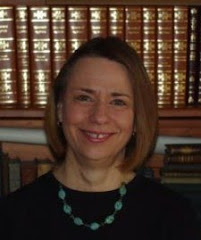Now in Shushan the palace there was a certain Jew, whose name was
Mordecai, the son of Jair, the son of Shimei, the son of Kish, a Benjamite; 6 Who had
been carried away from Jerusalem with the captivity which had been carried away
with Jeconiah king of Judah, whom Nebuchadnezzar the king of Babylon had
carried away. 7 And he brought up Hadassah, that is, Esther, his
uncle's daughter: for she had neither father nor mother, and the maid was
fair and beautiful; whom Mordecai, when her father and mother were dead, took
for his own daughter. 8 So it came to pass, when the king's commandment and his
decree was heard, and when many maidens were gathered together unto Shushan the
palace, to the custody of Hegai, that Esther was brought also unto the king's
house, to the custody of Hegai, keeper of the women. Esther 2:5-8
In the last blog I explained
how the women were picked. I was always under the impression that the women
went under their own free will. The more I studied the more I realized they did
not go under their own power but more than likely most were forced.
We now come to Esther, the main character. The Hebrew
meaning of Esther is” a star”, while the Persian name of Hadassah means “myrtle”.
The facts of Esther’s life are sad, but she was a survivor. She was a captive
from Jerusalem taken to Babylon. Esther was an orphan and adopted by her
cousin, Mordecai. We also learn that Esther was beautiful and was one of the
“gathered” young women by the officers of the king.
Mordecai was a very important
person in Esther’s life. He treated her as a daughter and gave her guidance in
her daily living. Mordecai’s name means “little man”. As we continue throughout
the book we will find he is anything but a “little man”. Mordecai’s name is
mentioned 58 times in the Book of Esther. As the story unfolds we will discover
he was one of the key players in the history of the Jews.
Join me the next time to
discover what happens under “the custody of Hegai”.
Donna

No comments:
Post a Comment